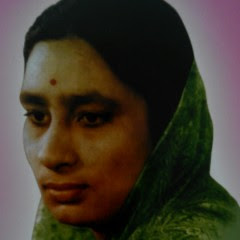When he was born, neighbors in the village suggested that his parents smother him. It was better than the pain they would have to go through their lifetime, some said. He is a “useless” baby without eyes… being born blind is a sin, others added.
Twenty-three years later, Srikanth Bolla is standing tall living by his conviction that if the “world looks at me and says, ‘Srikanth, you can do nothing,’ I look back at the world and say I can do anything.”
Srikanth is the CEO of Hyderabad-based Bollant Industries, an organisation that employs uneducated and disabled employees to manufacture eco-friendly, disposable consumer packaging solutions, which is worth Rs 50 crores.
He considers himself the luckiest man alive, not because he is now a millionaire, but because his uneducated parents, who earned Rs 20,000 a year, did not heed any of the ‘advice’ they received and raised him with love and affection. “They are the richest people I know,” says Srikanth.
For Srikanth, despite life being more challenging than it is for most of us, he always aimed high.Born blind into an agricultural family in Sitaramapuram village in Krishna District, Andhra Pradesh, he was admitted to a blind school in Hyderabad. He excelled in studies and scored above 90 percent in his class 10 examinations. He wanted to be an engineer and applied for the physics, mathematics and chemistry group for pre-university. But the education department said that a visually challenged person could only take up humanities. He had to run from pillar to post to get a favourable judgement. With the support of T Swarnalatha, his teacher from class 4, who translated all the books for him in audio format and braille he managed to score 93 percent. But the hurdle came when he wanted to join IIT after his pre-university. No entrance coaching institute gave him admission.
What is it about stories like Srikanth’s that so inspire and fill one with hope? Could it be the multiple zeroes after a dollar sign or the belief that you and I can achieve similar success if we set our minds and hearts to it? Underdog success stories touch a raw nerve. After all, everyone faces adversity, they dream, and they work hard. It is another matter that only a few cross the threshold of limits set by society.
In Srikanth’s case, it is his sheer tenacity that shines through the dark clouds of his misfortune. Being born blind was just one part of the story. He was also born poor. And you know what that means in a society like ours.
In school, he was pushed to the back bench and not allowed to play. The little village school had no way of knowing what inclusion meant. When he wanted to take up science after his class X, he was denied the option because of his disability. All of 18, Srikanth not only fought the system but went on to become the first international blind student to be admitted to the prestigious Massachusetts Institute of Technology (MIT) in the US.
Today, Srikanth has four production plants, one each in Hubli (Karnataka) and Nizamabad (Telangana), and two in Hyderabad (Telangana). Another plant, which will be one hundred percent solar operated, is coming up in Sri City, an integrated business city in Andhra Pradesh, 55 kms from Chennai.
Angel investor Ravi Mantha, who met Srikanth about two years ago, was so impressed with his business acumen and vision for his company that he not only decided to mentor him but also invested in Srikanth’s company.
They are raising $2-million (around Rs 13 crores) in funding and have already raised Rs 9 crores. According to Ravi, his personal goal is to “take the company to IPO.” A vision to build a sustainable company with a workforce comprising 70 percent people with disability is no mean task. “Srikanth’s vision is inbuilt in the company. It is not just a lip service to CSR,” adds Ravi.
When Srikanth was growing up, his father, a farmer, would take him to the fields but the little boy couldn’t be of any help. His father then decided that he might as well study. “In my parent’s entrepreneurship model, I was a failure. In entrepreneurship, we have a lean business model where we evaluate an enterprise and say how quickly it fails.” Since the nearest school in his village was five kms away, he had to make his way there mostly on foot. He did this for two years. “No one acknowledged my presence. I was put in the last bench. I could not participate in the PT class. That was the time in my life I thought I was the poorest child in the world. It was not because of lack of money but because of loneliness.”
He chose his battles carefully and did his homework searching the Internet to find the best engineering programme for someone like himself. He applied to schools in the US and got into the top four – MIT, Stanford, Berkeley, and Carnegie Mellon. He went to MIT (with a scholarship) as the first international blind student in the school’s history.
It wasn’t easy adjusting to life there, but by and by he started to do well. Towards the end of his bachelor’s course when the ‘what next’ question came up, it brought him back to where he had started.
Bolla wants to pursue an MBA in an institute like Harvard and become India's president. No doubt his story is one oft quoted by his hero, the former President Dr APJ Abdul Kalam.
“Show compassion and make people rich. Include people in your life and remove loneliness, and lastly, do something good; it will come back to you.”






